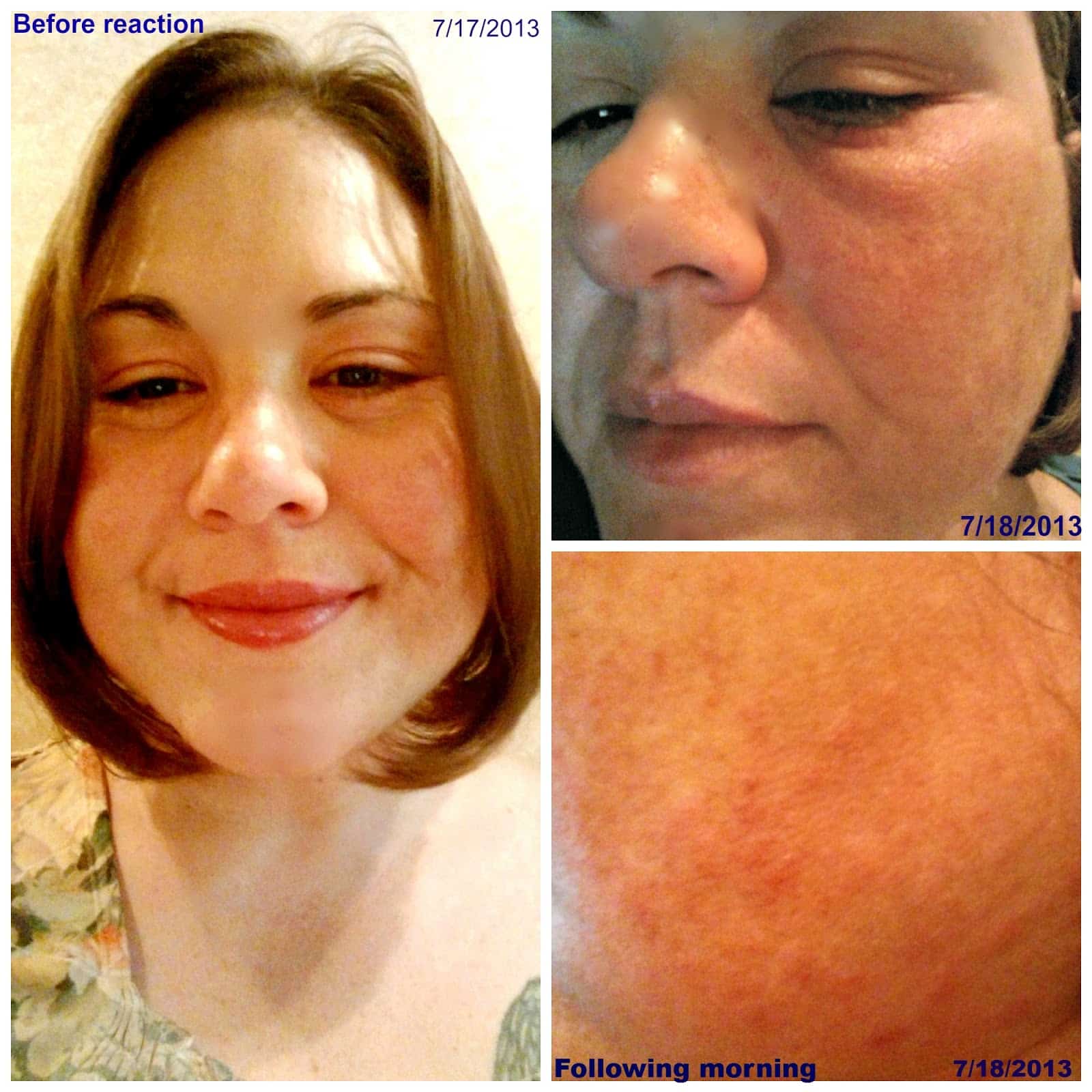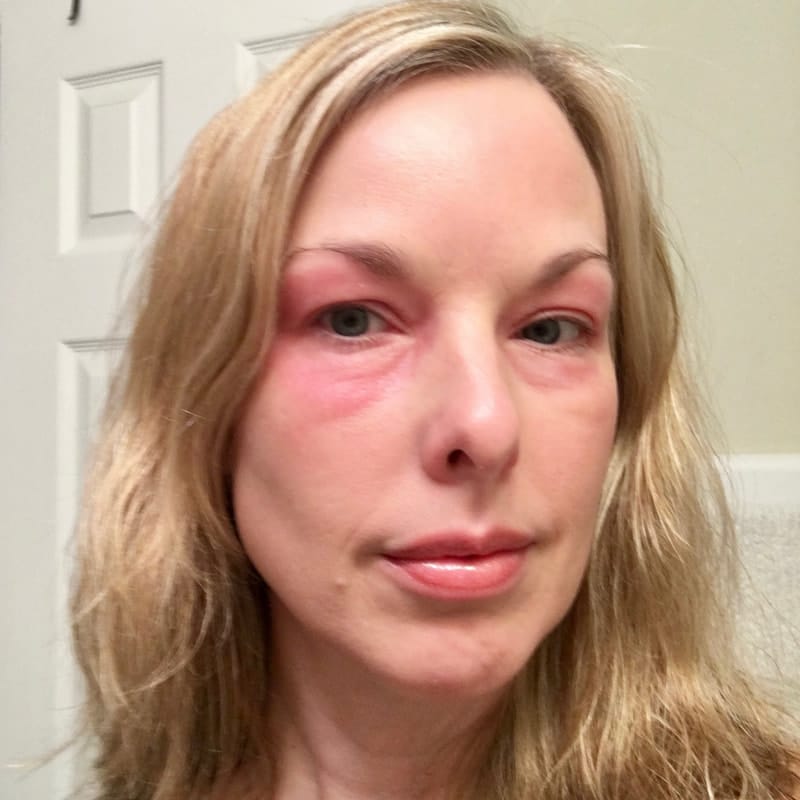What Time Of Day Are Allergies Worst
When it comes to allergies, there is no best time of day. Each person has their own unique set of allergies and susceptibilities that can cause problems at any given time of day.
Some people are more sensitive in the morning or evening, while others have allergies at night or during the day. The best time for you to start taking preventative measures against your allergies is when they are least likely to cause you problems.
Why Do Allergies Feel Worse At Night
Medical research suggests that the immune response to invading allergens might disrupt the body’s normal circadian rhythms, causing sleep disturbances in the affected individuals.
The hormones involved in the management of the sleep/wake cycle also activate in the presence of allergens. As a result, affected individuals may experience an increase in allergy symptoms as the hormonal response drops off as we prepare for sleep.
People who experience allergies at night may notice the following symptoms.
How Do They Affect Me
If you suffer from allergies, you already know that nighttime can be the worst time for symptoms. But why are my allergies worse at night? There are several possible explanations. One is that dust mites do more breeding in the dark hours between sunset and sunrise, so there’s just more of them to come into contact with your face as you sleep.
Dust mite droppings may also irritate mucus membranes, aggravating allergy symptoms like watery eyes or a stuffy nose. Or it could be because our bodies produce less of the hormone cortisol at night, which helps control allergic reactions. Whatever the reason, experts agree that by limiting dust mite exposure by using allergen-proof bedding, decreasing clutter in your bedroom, and getting rid of any carpeting or upholstered furniture where they’re likely to hide will help reduce night time allergies.
Read Also: Is Homeopathy Good For Allergies
Keep Your Pillow And Mattress Clean
Pillows and mattresses play a significant role in helping you enjoy a good nights sleep, but they are also a hideaway for triggers such as dust mites, pollen, and pet dander. Replacing pillows or covering them with an anti-allergy pillowcase can prevent allergens and relieve symptoms of nighttime allergy. Anti-allergen mattress covers are also effective in keeping away allergies.
Change Up Your Shower Routine

As you go about your day, youre slowing accumulating dust and pollen in your hair, clothes and on your skin. Once you get home and in bed, they can become irritable to your eyes and nose.
Cleanse yourself of these allergens by jumping in the shower at night rather in the morning . Itll wash all that pesky dust from your skin and with clean clothes youll be feeling fresh once you get into bed. Plus, that hot steam can help with any blocked noses.
You May Like: How Does Allergy Medicine Work
When To See A Doctor
Allergies will disrupt your quality of sleep and quality of life while coughing, sneezing, and other symptoms can harm your mental health too. If you suspect that you do have an allergy, it is best to visit a doctor as they can help identify what the cause of your nighttime allergies is, along with the best management or future prevention tips. Of course, many of the symptoms can be linked to viral infections. However, if the symptoms tend to surface only when you interact with allergens, it is a clear sign to visit a doctor.
The Temperature Is Colder
Nights are always usually a little bit colder, no matter how hot the place might be in the day. Viruses and allergens have a tendency to thrive in colder temperatures, this is why people tend to have severe allergic reactions in the winter months.
One of the reasons why your allergies might be worse at night time is because of this temperature drop. What you can do to adjust to the temperature is to have a blanket with you and keep the surrounding temperature in your room a bit higher.
Read Also: Does Allergy Medicine Help With Sinus
Pet Dander & Sleeping With Pets
Those who are allergic to pet dander can have instant reactions or longer-term symptoms.
Dander can travel and land on household and bedroom surfaces, so an animal doesnt have to be present for a pet dander allergic reaction to take place. Even if you dont own a pet yourself, you can bring the dander home with you after vising someone who does.
Common symptoms of pet allergies include:
- Hives and/or skin rash
- Wheezing, shortness of breath, and coughing
Why Are Allergies Worse At Night
We can see it now: you make it through an entire day unscathed, with no allergy symptoms, a well-lubricated nose and throat, and crystal clear eyes. You rejoice in a successful day without allergy symptoms only to experience a fragmented nights sleep with a stuffy nose through the night, and a frustrating dry throat that just wont quit.
Why do allergy symptoms get worse through the night? Can allergies make you tired? Why do you get a stuffy nose at night or a splitting headache in the morning?
In this blog, we will answer all of your burning questions about nighttime allergies.
Recommended Reading: How To Test Peanut Allergy On Baby Skin
What Can Trigger Nighttime Allergy Symptoms
Symptoms of allergies surface because the bodys defenses are fighting the foreign particle that are deemed to be a threat, despite the fact that they are often harmless items like pollen. The aforementioned items like dust mites and mold can trigger allergies. Similarly, if your immune system is vulnerable to pollen or outside allergens, it may be a case of bringing them into the home via your skin, hair, or clothes.
Dust mites are often found in mattresses, pillows, and duvets. In fact, a mattress could harbor up to 10 million dust mites. Meanwhile, mold is often left untreated when it appears behind beds. Not everyones immune system will be bothered by dust mites or other allergens but those that are will find that their symptoms worsen whenever they come into contact with them. A humid surrounding wont help the situation either.
What Type Of Allergies Worsen At Night
Not all allergies worsen in the evening and into the wee-hours of the morning. There are 4 common allergies that aggravate an already stuffy nose at night, trigger a persistent cough, make your eyes itch, or leave you with a daunting headache upon waking. These include: pollen allergies, pet dander allergies, dust mite allergies, and mold allergies.
You May Like: Can Allergies Make You Feel Dizzy
Why Are My Allergies So Bad In The Summer
Answer
When the weather becomes warm and humid, its no surprise that allergies are jumpy. In fact, one study found that people with allergies have a two-fold increased risk of developing asthma.
While some may argue that heat is to blame for the increase in allergies, there is another factor at play: Allergies are caused by an immune system reaction to pollen or other allergens.
When your body is overworked from the summertime influx of pollen and other allergens, it can cause an immune system deficiency. This can leave you open to flares of allergy symptoms such as sneezing, Runny nose, hives, and fever.
Use A Humidifier Or Dehumidifier

A humidifier or dehumidifier may help your nighttime allergies. It all depends on which allergen triggers your symptoms.
For example, if the dry air in the winter leaves your nasal passages dry and irritated, a humidifier might help. But if youre allergic to dust mites or mold, more moisture is the last thing you need.
Both mold and dust mites thrive in moisture. So, a humidifier might create the ideal environment for them to grow, leading to nighttime allergy symptoms.
If you do use a humidifier, consider the following tips:
- Keep the humidity level between 40-50%.
- Clean and change the filter regularly.
- Read the manufacturers guide on how best to clean the humidifier.
- Use distilled or demineralized water in the humidifier to avoid increased bacteria growth.
If youre experiencing humid weather, a dehumidifier may help. A great way to prevent exposure to mold and other allergens is by dehumidifying the air to less than 50 percent. A lower humidity level in the bedroom reduces your risk of breathing in allergens.
Recommended Reading: What Does A Skin Allergy Look Like
Treating Allergies At Night
If allergies are keeping you awake at night, you’re not alone.
In one study, only 17% of patients with allergies rated their sleep as optimal. About half of all people in the study said allergies and nasal congestion woke them up at night and also made it hard to fall asleep.
Why does it matter?
- Sleep deprivationis a stress that has significant consequences, such as high blood pressure and heart complications, as well as psychological consequences.
- Sleep deprivation affects every part of your life from your relationships to your ability to think and be productive to your income.
What Causes Allergy Symptoms To Feel Worse At Night
Sleeping on your back often encourages the flow of postnasal drip into the throat, causing a tickle in your throat as you sleep. Nasal blockages and runny noses are common occurrences among people with allergies, and they disrupt sleep during night. As we lie down, the mucus in our nose travels backward toward the throat. This can, in turn, lead to coughing and make it hard to sleep. Allergens on the bed may irritate the skin and cause itching on any part of the body .
Research was conducted on how chemicals released during the body’s immune response to allergens affect allergy symptoms at night and disrupt sleep. The sleep-wake cycle, which controls the cadence of sleep and wakefulness, is controlled by a large number of hormones. Some of these hormones are also involved in regulating allergic reactions. A reason why allergies are worse, particularly at night, is that certain allergy-regulating hormones dip when you approach deeper stages of sleep.
Recommended Reading: How To Test Baby For Cow’s Milk Allergy
Keep A Clean Pillow And Mattress
Pillows and mattresses are great for you getting a good nights sleep, but they also excel at harboring allergy triggers such as dust mites, pollen, and pet dander.
Replacing pillows or covering them with an anti-allergy pillowcase helps. In addition, there are anti-allergen mattress covers for sale that are effective in helping to relieve nighttime allergy symptoms.
Why Dont We Experience The Same Seasonal Allergies In The Winter
Its helpful to remember that seasonal allergies typically refer to pollen-based allergies or those that occur as a result of plant matter. We do not experience pollen-based allergies in the winter for a few reasons.
Most of us spend most of our time indoors during these months since we do not particularly enjoy being turned into human popsicles. However, on the unpleasant occasions that we are forced to trek outside during an arduous winter, were still unlikely to experience seasonal allergies.
In mid-January, the trees and plants that surround us appear to be dead, or more realistically, are slowing down and laying dormant until the warmer months. This means that there is little to no plant matter or pollen available to bother us.
When the weather finally does get warmer again, we will be greeted with a plethora of beautiful flora as the plants return to their former glory. On a less bright side, these natural beauties coming alive again means that many of us will be forced to withstand a few months of sneezing, itchy eyes, and more.
Don’t Miss: Can You Take 2 Allergy Pills
What Are Your Allergy Triggers
People who suffer from allergies must learn their triggers. Your triggers are the environmental factors causing your allergic reaction. While people with allergies generally have sensitivity to most allergens, they may be more sensitive to some than others.
For example, the affected individual may have a severe allergy to tree pollen and less of an allergic response to VOCs, or vice versa. Learning your triggers is vital to understanding which environments you need to avoid and at what times of the year the allergens are most present in the air.
How To Manage Nighttime Allergies
Night time allergies can be controlled with immunotherapy, antihistamines, steroid tablets, and steroid creams. In studies into antihistamines and allergy, Katrina L Randall found that less sedating antihistamines can be taken long term with no loss of efficacy. This can help stop the symptoms from worsening at night. Adrenaline auto-injectors are another option.
Changing the sleeping environment and adopting simple lifestyle updates can have a big impact. From reducing your time outside when the pollen count is high to keeping rooms ventilated, you could see a noticeable difference. If you do, implementing a consistent approach to keep symptoms at bay will be advised.
Recommended Reading: Can You Desensitize Yourself To Allergies
Hay Fever Or Allergic Rhinitis
If you find the same symptoms flaring up when the colder autumn and winter months set in, its probably not hay fever at all. Chances are youre allergic to something else and suffer from allergic rhinitis.
According to the NHS, allergic rhinitis is:
Allergic rhinitis is inflammation of the inside of the nose caused by an allergen, such as pollen, dust, mould or flakes of skin from certain animals.
It affects one in five people and comes with all the same symptoms youd expect from hay fever: sneezing, itchy eyes and a runny nose. This is why its so easily confused with hay fever.
Wash Your Clothes Immediately

If youve spent any time outside during high pollen count dates youll benefit from a quick change of clothes when you get home instead of continuing to lounge around in them.
Rather than wait until laundry day, throw them into the washer and immediately wash your clothes. Even when you cant see the pollen or allergens they linger on your clothes and contribute to inflammation and upper respiratory allergies.
You May Like: Can Allergies Cause Pus Pockets On Tonsils
Tips For Reducing Night Time Allergies
You can do several things to help diminish your nighttime and early morning allergies, returning your sleep to a restful state.
There are several cleaning tactics that you can start integrating in your monthly, weekly, and daily routines. If you are allergic to pollen, wash your hair at the end of every day to remove pollen collecting during the day and prevent it from ending up on your pillow. You should also keep your windows closed if possible to keep pollen from coming indoors. Try to wash your bed sheets once a week to remove dust mites, pollen, and pet dander. Between cleaning, using a dust mite cover on your bed can help keep dust mites away from you. Do a deep cleaning of your entire bedroom on a monthly basis, cleaning carpets and wiping down hidden surfaces where mold may be lurking.
Air purifiers are often recommended as a way to remove allergens. Research has shown that multiple interventions, including using an air purifier placed right by the bed in the sleep breathing zone may help reduce their levels. Traditional air filters can trap pollutants on filters, though Molekule air purifiers go beyond simply trapping pollutants to destroying them at the molecular level.
Sleep is an important part of feeling healthy and performing your best. Nighttime allergies can come in the way of restful sleep. By understanding how allergens work and following the tips above, you may find yourself more refreshed in the morning.
Post Tags
Purchase An Antimicrobial Mattress
A mattress is often an attractive environment for microorganisms like dust mites and dander to spread and multiply.
Polysleep has designed and manufactured an antimicrobial foam mattress.
A ventilated viscoelastic hybrid foam, ISO 207443 certified, ensures good air circulation. Additionally, a micro-perforated foam helps the mattress breathe naturally.
This Polysleep mattress offers a healthier and safer sleep surface.
Our antimicrobial mattress is resistant to allergens, mold, bacteria, and dust mites.
It inhibits or kills the growth of these common household microorganisms, providing the user with a hygienic sleeping surface each night.
Read Also: Can A Gastroenterologist Diagnose Food Allergies
What Is The Average Allergic Response
As mentioned, allergic responses differ between individuals, depending on the extent of their condition. Some people experience a severe reaction, while others have a much milder time with allergens.
In most cases, people with mild allergies may notice irritation to their eyes, mild reddening and inflammation, and some tearing. These individuals may also experience symptoms of sneezing and light coughing.
People with severe allergies notice more irritation to the eyes and the skin in general. They may also experience a stuffy sinus and intense watering from the eyes. Sensitive individuals may also begin to develop respiratory issues, and they may start to struggle with breathing.
How To Prevent Nighttime Allergies
Prevention is the best form of protection when dealing with nighttime allergies and the allergens that trigger your symptoms. Therefore, you must try to prevent bringing pollen from outdoors into the sleeping environment while also ensuring that the bedroom itself carries fewer allergens. Some of the top tips to do this include, but are not limited to
- If youve been outside, shower or wash before going into the bedroom.
- Wash the bed covers, duvet, and pillows once per week.
- Where possible, lose carpets for hardwood flooring or vinyl.
- Consider adding plastic covers to the bedding to prevent mites.
- Regularly clean under and behind the bed.
- Add a dehumidifier to improve the air quality in the room.
When dealing with a childs room, keeping soft teddies stored in boxes can be a useful step too. It prevents them from collecting dust.
Read Also: How To Get Rid Of Face Allergy Naturally

